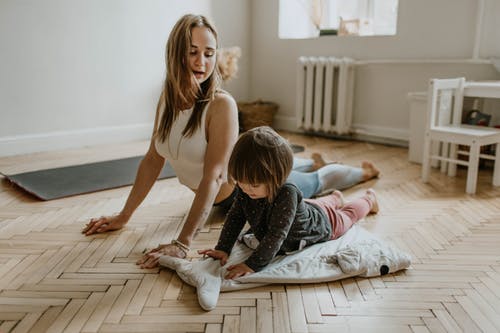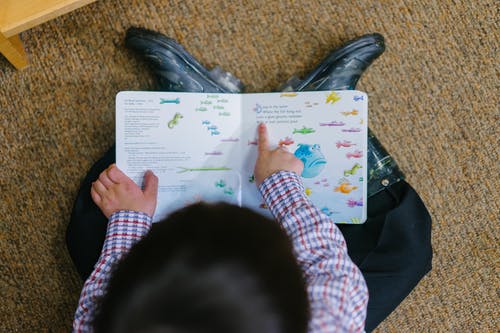Wondering how to keep your children well during isolation?
Parenting is tough. Throw in a global pandemic where you’re confined to your home and it can feel near impossible.
The next couple of weeks to months are going to be very hard for everyone, especially our children. Children are very susceptible to stress yet they don’t have the ability to fully understand it at such a young age so it can really take a toll on their mental and physical health. As children have a lot of emotional needs that need to be met for their healthy development, it’s important that we as parents try to meet these needs as much as possible during this lockdown period.
If you’re wondering how to keep your children well during isolation, here are the top 8 emotional needs of children that need to be met and our tips on how you can satisfy them.
Needs that you need to meet to ensure your children’s’ wellbeing
Children need to feel secure
Children pick up on adult’s worries and our insecurities normally, so imagine how much they are going to feel now. With so much uncertainty and panic going around, it’s going to be hard to shield our children from feeling this too; what we can do, however, is make them feel safe and secure by focusing on the things that we can control. Reassure them about the things that we know, encourage them to see the positives wherever they can, and focus on things that will make them feel more secure (e.g. their daily routine, their favourite activities, let them choose what they would like to wear etc).

Children need to eat, drink and sleep normally
Our wellbeing largely depends on how we treat our bodies, primarily, how much we rest it and how we fuel it. To ensure that your children are as well as they can be during isolation, stick to the routine of regular meals times and bedtimes as much as possible. Having a balanced plate or box of healthy snacks will nourish their bodies while sufficient sleep will rest their brain, calm their emotions, and repair their body. When we are well-rested and nourished, our immune systems are working at their best.
Read: How to Create a Daily Routine that Works for Your Family
Children need to feel a sense of achievement and purpose
You might not think that young children need to feel a sense of meaning in their life, but they do. These needs are usually met when they achieve something in school or when they are a part of an extracurricular group. To help your children still feel this is isolation, decide on what tasks they can help you with around the house. Maybe they can be in charge of feeding the pets or laying the table at dinner time? Maybe completing a puzzle or designing their own treasure hunt around the house for you to do will satisfy them? Find what works for them, whatever makes them feel like a valued part of the family and don’t forget to praise their efforts.

Children need attention
Your children may be wanting more attention from you during isolation and while this can sometimes be down to boredom, it might because they need their emotional needs met too. It’s really hard to juggle working from home with taking care of your children full time, but where you can, try to spend real one-on-one time with them. It can be something as simple as sitting down to play Lego for an hour, baking with them or snuggling down to read a book before bed. If you set expectations with them every day, such as you can have scheduled playtime with them between these times, they will know when they are expected to play alone and will be far happier to do so as they know that they get time with you later.
Children need to move (a lot)
If you want to know how to keep your children well during isolation, you need to get them moving. Children usually burn off so much energy while at school so they are going to have a lot of it while at home for a long period of time. They need to burn this off otherwise it will be released in the form of tantrums. Lack of exercise makes us all sluggish and grumpy anyway (which is bad for a whole family at home for so long), so get everybody moving to release those happy endorphins. Go for a walk in your one hour outside, involve your little ones in whatever exercise you like to do such as yoga, and get out in the garden as much as possible. You can even set them the task of making up their own dance/yoga/karate/gymnastics routines to show other family members or friends via video chat – that’ll be good for everyone involved.

Children need a sense of community
Children are so social so with schools shut and extracurricular groups not running, they may miss this sense of community. To help keep them connected with others, try setting up video calls with other families, painting pictures to stick on windows, or writing messages and cards for friends. Lots of children’s services are providing online videos to keep children busy, active and entertained, such as fitness, yoga, art and storytelling or encouraging online challenges, so incorporate these into their daily routines.
Children need a strong emotional connection
This is a difficult time for everyone, especially for you when you have to balance work, parenting, worry, and trying to give your children both educational stimulation and entertainment, so don’t be too hard on yourself or your children. Children need to feel particularly cared for and free from judgement at this time, so make a game out of your days and try not to put pressure on about homework and school packs. Break up your day by changing activities and encouraging creativity. Think little and often when it comes to learning and mix this with fun, calming activities such as reading.
Children need privacy (and so do you)
Having the whole family in such a small space for a long time can be difficult so to avoid unnecessary arguments, give everyone some time by themselves. To do this, it can be as simple as giving your children blank pieces of paper to draw on while you work in the next room or you can encourage playing in separate spaces to allow rest and quiet for the rest of the family.

Make isolation a period of connection and creativity
As we said, the next few weeks and months are going to be tough for us all so looking after our wellbeing needs to be a priority. If you’re wondering how to keep your children well during isolation, you just have to keep up as much of a routine as possible, try to keep stress levels low, give them as much love and attention as they need, and help them take control of their days so they feel safe and secure at home.
By satisfying your children’s needs at this time, they will be able to refocus their attention on things that will make them remember this time as a period of connection, creativity and calm.
At Schoolhouse Daycare, we enjoy learning, encouraging confidence and we love life! If you think your child would enjoy life at Schoolhouse, then please do not hesitate to arrange a visit.

